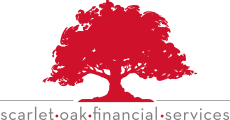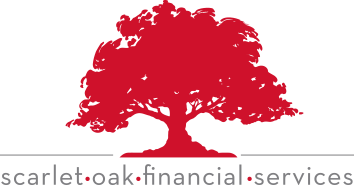In recent years, many people found their financial momentum disrupted—whether by personal challenges, economic shifts, or the unpredictability of life. Survival often took priority, and long-term goals were set aside in favor of immediate needs. You may now find yourself in a place where you’re not making poor financial decisions, but you’re also not moving forward with intention.
The good news? You’re ready to reset. This is your opportunity to take meaningful steps toward financial stability. And at the top of that list is starting—or rebuilding—your emergency savings fund. Whether you’re replenishing after a setback or starting from scratch, this move is one of the most important ways to secure your financial future.
If you need assistance with more financial goals, click here for a helpful article.
Here are some tips for refocusing your saving:
Save a doable amount.
- Savings should be an amount that doesn’t make the paying of your other necessary bills more difficult. Essential needs are things like housing, food, utilities, transportation, etc. If you fail to save but are still spending on non-essentials, it might be time to reevaluate your budget. If you fail to save and every penny is going to essentials needs, it might be time to look for ways to reduce your bills or expand your income.
Even small amounts add up over time.
- You have dug through your spending, budget-cutting and trimming your excess expenditures, and you still only have $25 or $50 to put aside a month. Great, put that amount away. Emergency savings function isn’t to make you rich; it is to safeguard against disaster. You will be in a better place financially if you can contribute $300 or $600 to an emergency like a car repair or doctor’s bill from your saving even if you need to put the rest on a credit card, then if you put the full amount on a card.
Emergency savings are created steadily with the long-term in mind.
- Emergencies happen to us all, regardless of age, race, gender, relationship status, familial structure, the area we live in, or income level. Even “normal” times, treating your emergency saving as a monthly contribution that you don’t touch until you absolutely need it is key. This money should have a cloak of invisibility around it that prevents you from seeing it as any part of your spending money until the enviable day that disaster strikes.
This money should be invisible but accessible.
- Emergency funds are kept in an account that you have access to without much trouble- remember the only time you should spend this money is IN AN EMERGENCY. It might be smart to have it in an account that you don’t see daily if the urge to use the money for you isn’t one you can resist. There are account options that range from traditional bank savings accounts to a money market account, but the key things to research are accessibility, fees, and interest earned.
Save 3-6 months’ worth of living expenses but…
- While the general rule for emergency funds is to save 3-6 months’ worth of expenses, many factors could change the amount you need to keep. All these reasons would alter your goal for your emergency fund.
- You are in poor health.
- You have people or animals that depend on your income too.
- You have a large amount of debt.
- You have an unreliable car.
- You own your home, especially if the house is older or needs a lot of upkeep.
- You work in an industry that is hard to find a position unless you are willing to relocate.
- Your type of career position and salary is challenging to find.
- You would need to start in a more entry-level position to reenter your industry.
- The job market is currently stagnant or challenging.
- You own a business, are self-employed, or are a freelance worker.
- You own rental properties.
Create smaller targets to keep you motivated.
- Often the barrier to starting an emergency fund is the amount to save seems so large, almost unreachable, especially if you have struggled to save in the past. Thinking of 6 months of expenses or even three months looks so daunting that you never start towards your goal. By creating smaller targets within your larger goals, you can help yourself smaller wins that make your larger goals more attainable.
Having a robust emergency savings plan is one of the best ways to avoid debt accumulation and decrease financial stress. By creating your own financial resources for the future, you are less likely to rely on high-interest credit cards in times of emergency or need. Personal saving is a bill you pay to your future self. It requires the same regularity payment that you give to your other debts.
If you are having trouble managing your expenditures, click here for a spending tracking sheet.
Scarlet Oak Financial Services can be reached at 800.871.1219 or contact us here.
Sources:
- https://credit.org/blog/how-to-manage-your-savings-account-effectively/
- https://www.discover.com/online-banking/banking-topics/where-to-keep-emergency-fund/
- https://www.thebalance.com/is-your-emergency-fund-too-big-4142617
This material has been prepared for informational purposes.



